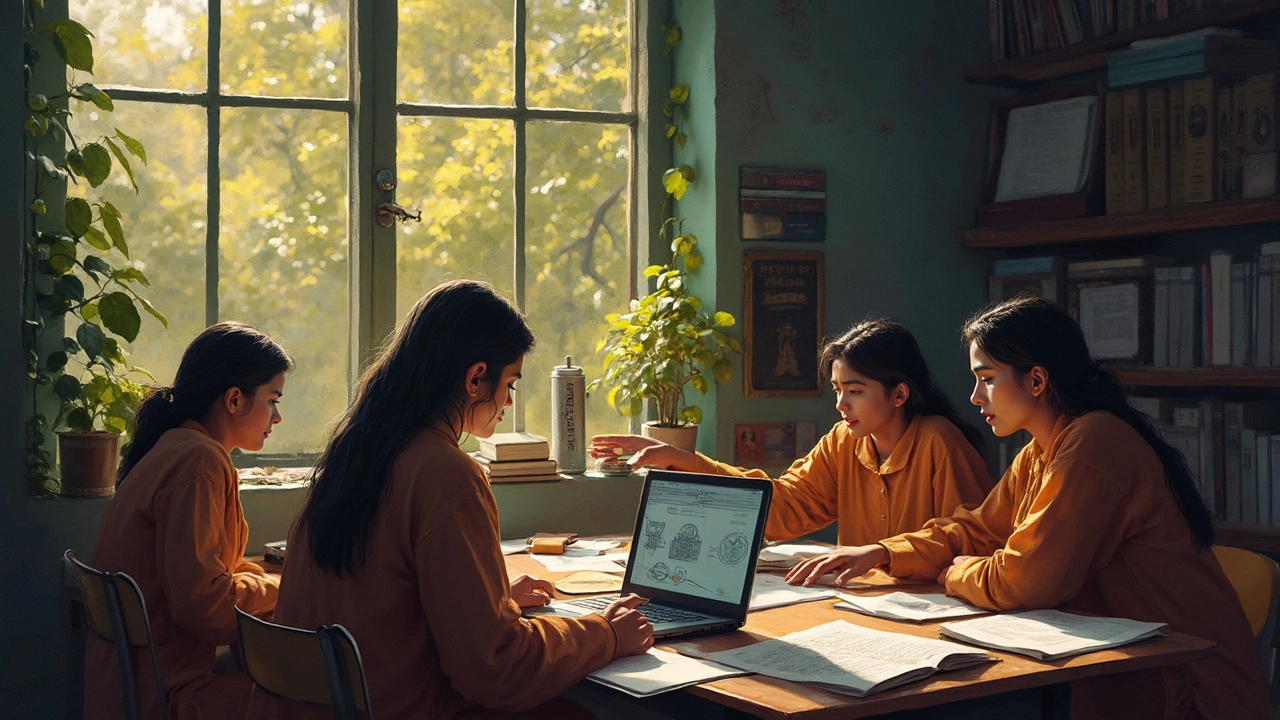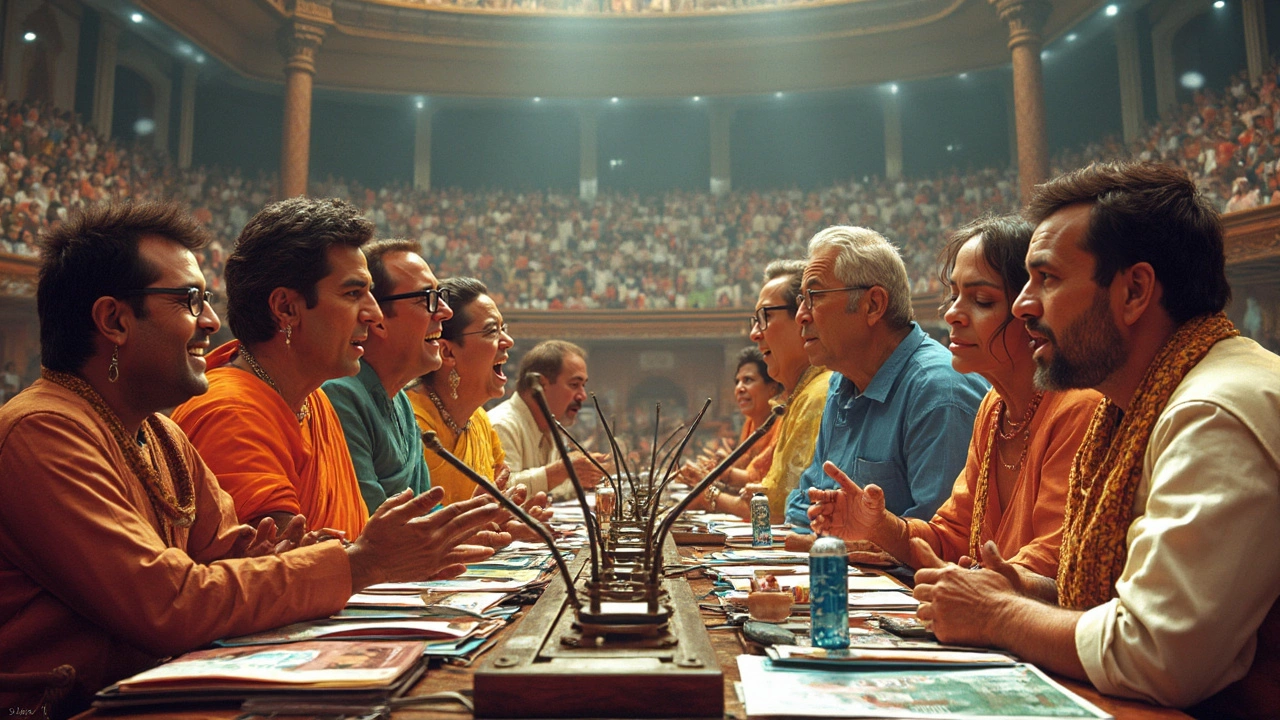The National Eligibility cum Entrance Test (NEET) has become a hot topic in India. It’s the gateway to medical colleges, but not everyone is a fan. Some states have voiced strong opposition to this exam. Why? Well, they believe it undermines their autonomy and disadvantages students from certain sections of society.
Which states oppose NEET, you ask? Tamil Nadu is a big one. They've argued that NEET favors students from urban areas and those who can afford coaching classes. West Bengal has also raised concerns about the fairness of the exam, questioning if it truly levels the playing field for all students. There's a clear division where some states see NEET as a necessary standard, while others view it as a barrier.
- Understanding NEET
- States in Opposition
- Reasons for Opposition
- Impact on Students
- Alternatives to NEET
- Future of Medical Admissions
Understanding NEET
So, what exactly is NEET? NEET, short for the National Eligibility cum Entrance Test, is the all-India entrance exam for admission into undergraduate medical and dental courses.
Before NEET was around, different states and colleges conducted their own entrance tests. This led to a lot of confusion and discrepancies in the admission process. The idea behind NEET was to create a single, standardized exam, ensuring a fair chance for every aspiring doctor across India.
Why Was NEET Introduced?
NEET was introduced to tackle issues like multiple entrance tests creating confusion and added burden on students. Now, instead of juggling several exams, students just focus on one. Sounds great, right? It also aimed at curbing the ugly practice of capitation fees (basically, paying big bucks for a seat) in private colleges.
Who Conducts the Exam?
The National Testing Agency (NTA) oversees the NEET exam. This organization ensures that the exam is conducted fairly and follows all required guidelines.
What's on the Test?
It's important to know that NEET isn’t an easy ride. It covers three main subjects: Physics, Chemistry, and Biology (Botany & Zoology). Each of these subjects is crucial, with students needing to master all to crack the exam successfully.
The Bigger Picture
NEET aims to provide an equal platform for students nationwide, regardless of their background. With NEET, any student, whether from the bustling streets of Mumbai or the quiet villages of Telangana, theoretically has the same opportunity to enter their dream medical college.
However, that's the theory. Some argue it doesn’t quite work out that way in practice, and this gap is what sparks opposition from various Indian states.
States in Opposition
NEET isn't exactly loved everywhere in India. Some states are downright against it, and there's no shortage of reasons.
Tamil Nadu: Leading the Charge
Tamil Nadu has been a vocal opponent of the NEET exam. They argue that the exam puts students from rural and less privileged backgrounds at a serious disadvantage. The state has a rich history of leaning on its own entrance exams, which tailored to the specific needs of their local students. They've even passed bills attempting to exempt students from NEET, although these haven't always stood in the face of federal laws.
West Bengal: Concerns About Fairness
Then there's West Bengal, where leaders have expressed that NEET may favor those who can afford top-tier coaching more than those relying purely on school education. This is seen as a barrier to education equity, and it has been a consistent point of contention in the state's educational debate.
Other States Joining In
It's not just Tamil Nadu and West Bengal. States like Maharashtra and Kerala have also raised eyebrows. They worry that a one-size-fits-all exam like NEET doesn't account for the diverse educational backgrounds across India. These states suggest a more regional approach to medical entrance exams could be much fairer.
Here’s a quick look at some specifics:
| State | Primary Concern |
|---|---|
| Tamil Nadu | Rural students disadvantaged |
| West Bengal | Unfair to those not in coaching |
| Maharashtra | Need for regional exams |
| Kerala | Lack of regional consideration |
Overall, the opposition isn't just a regional gripe—it's a rallying cry for greater educational equity. These states aren’t backing down easily, and their pushback keeps the debate on NEET alive and kicking.
Reasons for Opposition
So, why are some states rallying against the NEET? The reasons are as varied and deep as India itself. First off, there's the concern about unfairness. Critics argue that NEET favors city students who have access to better resources and coaching. In contrast, those from rural areas or disadvantaged economic backgrounds are left scrambling.
Language is another hot-button issue. While NEET is conducted in multiple languages, critics say it still puts non-English speakers at a disadvantage. For example, states like Tamil Nadu claim their students who study in the Tamil language find it tough to compete on an equal footing in English or Hindi-centered exams.
Autonomy and Educational Diversity
Several states feel their right to frame independent educational policies is under threat. Education in India is a joint responsibility of the central and state governments. NEET, being centrally formulated, is seen as undermining state-level syllabi and diversity in education formats.
Economic Disparity
Not everyone can afford private coaching sessions, which are seen as almost a necessity for cracking exams like NEET. This situation amplifies economic disparity, making it an uphill battle for many aspiring doctors from less privileged backgrounds.
| State | Major Concern |
|---|---|
| Tamil Nadu | Unequal Resources |
| West Bengal | Language Barrier |
| Karnataka | Autonomy Issues |
Even beyond these points, some argue that NEET doesn't necessarily assess a student's genuine aptitude for medicine. Instead, it rewards those who can memorize and regurgitate information effectively. Whether you support it or oppose it, understanding these perspectives is crucial, especially if you're gearing up for this contentious exam.

Impact on Students
NEET can be a game-changer for many students, but not always in a good way. Its introduction turned the medical college admission process in India upside down. Some students benefit from this standardized test because it tries to ensure that everyone is assessed by the same standards.
Stress and Pressure
However, not every student is cheering. Many face intense pressure and stress because the stakes are so high. Imagine having your entire medical career hang on a single exam! It’s a challenge that’s been boosted by the need for specialized coaching, which can make or break a student.
Disparities Across Regions
The opposition from states like Tamil Nadu and West Bengal shines a light on a major issue — disparity. Students from rural or economically weaker sections face a tough time competing with others who can afford better coaching.
Economic Strain
Beyond the mental toll, there’s a financial impact too. NEET preparation can be costly, putting a strain on families who invest heavily in coaching classes. It's not just tuition fees; it's travel, accommodation, and resources, which not every family can afford.
Alternatives and Adaptations
So, what’s the way forward for these students? Some states are trying to provide local assistance programs and short courses to level the playing field. Others argue for alternative assessments that consider different aspects of a student's abilities.
Overall, NEET isn't just an exam; it's a lens through which we see the broader issues in India's education system. The ongoing debate is a reminder of the need for a more equitable solution for aspiring medicos.
Alternatives to NEET
So, what if NEET wasn't the only way to get into a medical college in India? Several states and educational experts have been toying with different ideas that might serve as alternatives to this one-size-fits-all exam.
State Board Examinations
One suggestion is to use state board examination results for medical college admissions. This could potentially level the playing field by considering the varied educational contexts across different regions. However, there are concerns about standardization and corruption that need serious thinking through.
University-Level Entrance Exams
Another potential route could be individual university entrance exams. Some states, like Maharashtra, have previously used this model, allowing universities to set their own criteria. This approach could offer students more tailored opportunities based on specific program needs.
Weighted Admission Scores
A blend of board exam scores and NEET-like exams could also be a solution. This method would perhaps balance local educational scenarios with nationwide standards. For example, Tamil Nadu has suggested incorporating board results to give their students a fairer chance.
Decentralized College Admission Models
Some educational reformers also propose a decentralized model where colleges have more autonomy to decide their admission processes. It sounds great in theory, but there'd need to be robust systems to guard against bias and favoritism.
The debate is lively and ongoing. Alternatives to NEET will likely continue to evolve as India grapples with equitable and effective ways to select future medical professionals.
Future of Medical Admissions
Looking ahead, the debate around NEET and the future of medical admissions in India is only getting more intense. It's like everyone has a different recipe for what's best. Some states want to ditch NEET altogether and return control to regional exams, hoping this could make things more equitable for local students. Others argue for tweaking NEET, making it more inclusive without losing its standards.
One thing's for sure, the NEET opposition has pushed the central government to look closely at its policies. There's talk of possibly offering exams in more languages, so everyone gets a fair shot, regardless of which corner of India they're from. Others suggest revising the syllabus to align better with state curriculums, which might ease some of the academic transition issues.
In this heated climate, the role of technology can't be ignored. Online coaching platforms are on the rise, potentially leveling the playing field by offering resources to students in remote areas. But, there's a long way to go to ensure everyone has equal internet access. Also, the introduction of AI learning tools might help tailor teaching methods to different learning styles and paces.
The future could also bring new policies that blend NEET with state-specific assessments. This hybrid model could hopefully address both the uniformity and diversity challenges. While some see these changes as essential, others fear they'll complicate an already tough system.
As of now, students and educators must stay agile. Changes can happen anytime, and staying informed is half the battle. So, watch this space, as the next few years could see some dramatic shifts in how aspiring doctors get their start in India.
